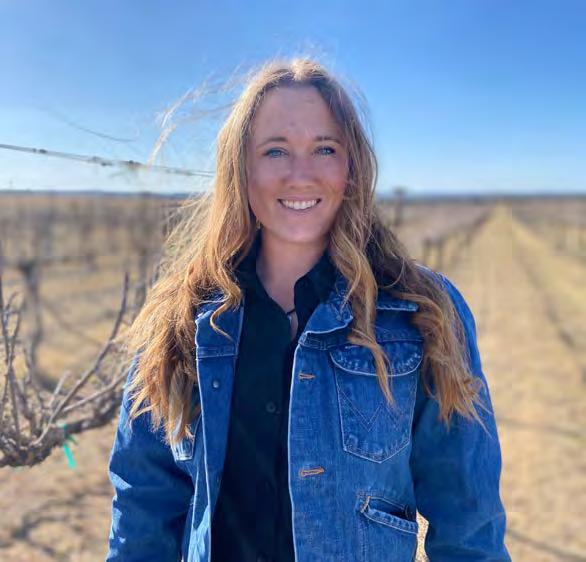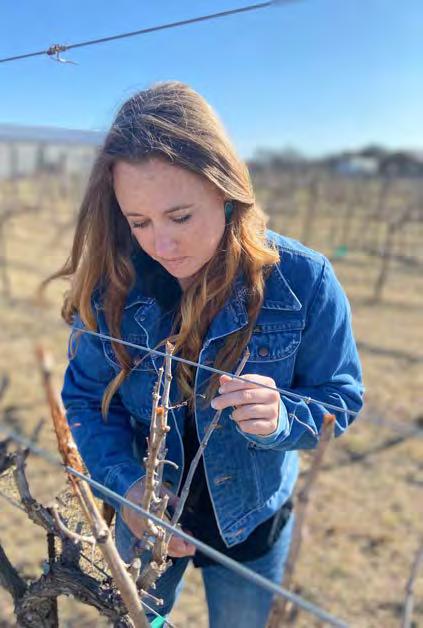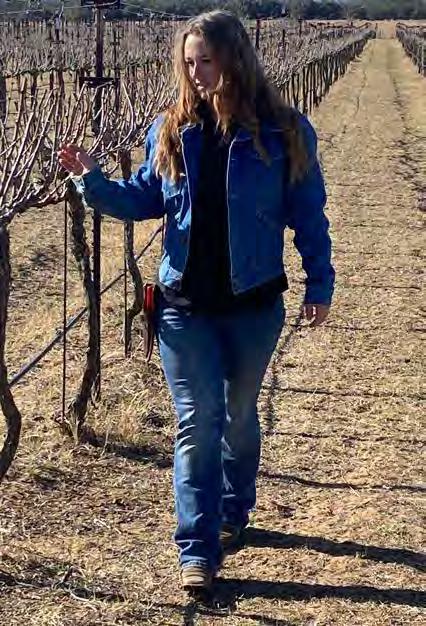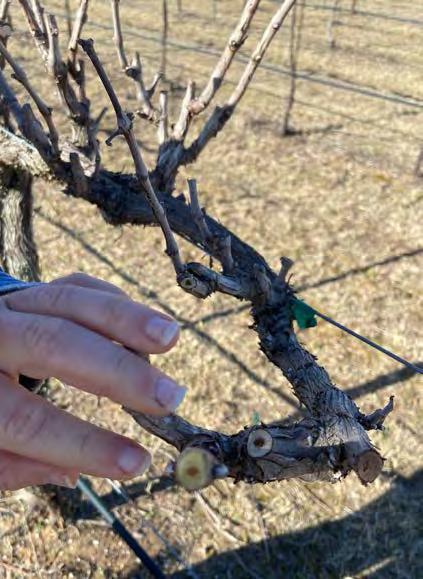
2 minute read
SHERAH MILLS : RUSTIC SPUR + KERRVILLE HILLS WINERY
Sherah Mills of Rustic Spur and Kerrville Hills Winery is a prime example. Mills grew up in Bastrop and began her education at Tarleton State University. “I had always been a really good student but things weren’t clicking,” Mills said of her double majors in Agricultural Education and Agricultural Economics. “It just didn’t seem like that was what I was supposed to be doing.”
Around the same time, her parents moved to Stonewall to pursue their deep-seated dream of starting a vineyard. In 2014, she transferred to Texas Tech and received both her Bachelor and Master degrees in Plant and Soil Science. On the weekends, Mills remembers hurrying home to help her family with the vineyard. “Anytime I wasn’t in class, I was in Stonewall,” she said.
Advertisement
Today, Mills manages the family’s Rustic Spur Vineyard, where she found an early mentor in the winemaker and consultant, John Rivenburgh. “He’s been my mentor for nine years now,” she shared. “Every time he explained what I needed to do it made sense, which was a breath of fresh air after struggling in Ag Economics. From there it became a passion – I couldn’t get enough.”
It seems only fitting that Mills’ vocation is linked to the land, given her long lineage of family farmers. “We have five to six generations of farmers on both sides of my family,” she explained. “I always knew I wanted to be involved in agriculture.”
Today, she works hand-in-hand with her parents both at Rustic Spur and Vintner’s Hideaway, which they opened in downtown Fredericksburg in 2018. “We laugh now because this was going to be their retirement,” she joked. Instead, “it is just hard work six to seven days a week.”
Family duties aside, Mills considers her main job to be the Vineyard and Winery Project Manager at Kerrville Hills Winery. “Being able to help people is my passion,” she shared, and one that she has put to good use through the organization’s incubator program. “Every piece of property has its own story and challenges, but also its own strengths.”
At Kerrville Hills, Mills also works alongside a mostly female management team, which she believes is a promising sign of the market’s growing inclusivity. “When I first started it was definitely a male-dominated field,” she said. Regardless, the 29-year-old believes that the work proves itself. “I am five-foot-two, and when I drive up in a one-ton truck and get in the tractor, or I am the one with the gooseneck trailer hauling the fruit, people find out pretty quickly I can hold my own weight,” she quipped. “I do feel now, especially in the last four years, we are seeing this surge of female winemakers; there are several female viticulturists doing a phenomenal job.”
Moving forward, Mills has toyed with the prospect of a winemaking role, though admittedly, she is most content working outdoors. “My biggest draw is definitely getting to work outside and know the land,” she shared adding, “And I get to take my dogs to work!”
Thus far, this outdoor lifestyle has bred many life lessons. Years ago, when she was first learning the pruning process, she can remember staring at a vine for fifteen minutes, wondering whether to cut. Her trusted mentor, Rivenburgh, offered some sage advice. “He said, ‘It doesn’t matter what cut you make as long as you have the guts to make the cut.’ And I can apply that to so many decisions,” she said. “It doesn’t matter what decision you make as long as you make it and stick to it. Sometime you just can’t worry about it, you have to have the guts to do it and see it through.”
The pruning process is integral to maintaining vines. The dead must come off; this shows the bright stem that can mature because of its color.
Chickens (over 20 and growing) are a natural pest repellent that Mills likes to use for keeping her vines safe.














